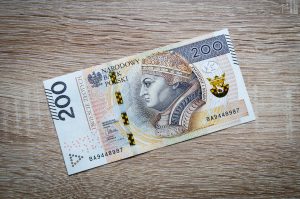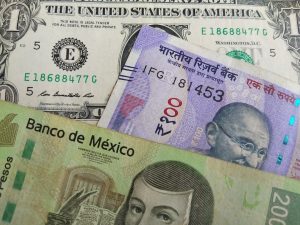The forex market, also known as the foreign exchange market, is the largest financial market in the world. With an average daily trading volume of over $5 trillion, it is a highly liquid and dynamic market where currencies are bought and sold. But who manipulates the forex market? This is a question that many traders and investors ask themselves, and the answer is not simple.
To understand who manipulates the forex market, it is important to first understand how the market works. The forex market is a decentralized market, which means that there is no central exchange or clearinghouse. Instead, it is made up of a network of banks, financial institutions, and individual traders who trade currencies electronically. The prices of currencies are determined by supply and demand, with the value of one currency relative to another constantly fluctuating.
With this in mind, it becomes clear that anyone with enough buying power can affect the price of a currency. This includes central banks, governments, hedge funds, and large financial institutions. These entities can manipulate the forex market in a number of ways, including:
1. Central banks: Central banks are responsible for setting monetary policy and managing the money supply in their respective countries. They can manipulate the forex market by buying or selling currencies in large quantities, which can affect the value of the currency. For example, if a central bank wants to weaken its currency to make its exports more competitive, it can sell large amounts of its currency on the forex market. This increases the supply of the currency, which can cause its value to decrease.
2. Governments: Governments can also manipulate the forex market by implementing policies that affect the value of their currency. For example, a government may impose capital controls to limit the amount of money that can leave the country, which can affect the supply and demand of its currency. Governments can also use their influence to persuade central banks to intervene in the forex market.
3. Hedge funds: Hedge funds are investment funds that use a variety of strategies to generate returns for their investors. They can manipulate the forex market by taking large positions in a particular currency and then using their influence to affect the supply and demand of that currency. For example, a hedge fund may take a large long position in a currency and then start spreading rumors about the strength of the economy, which can cause other traders to sell the currency.
4. Large financial institutions: Large financial institutions, such as banks and investment firms, can also manipulate the forex market. They can do this by taking large positions in a currency and then using their influence to affect the supply and demand of that currency. For example, a bank may take a large position in a currency and then use its influence to encourage other traders to buy or sell that currency.
Manipulation of the forex market is illegal in most countries, and regulators have taken steps to prevent it. However, it is difficult to detect and prevent manipulation, especially when it is done by large and powerful entities. As a result, traders and investors need to be aware of the risks of trading in the forex market, and should take steps to protect themselves from manipulation. This includes using risk management strategies, diversifying their portfolios, and staying informed about market developments.
In conclusion, the forex market is a complex and dynamic market that can be manipulated by a variety of entities. Central banks, governments, hedge funds, and large financial institutions all have the ability to affect the supply and demand of currencies, which can influence the value of those currencies. While regulators have taken steps to prevent manipulation, traders and investors need to be aware of the risks and take steps to protect themselves.






